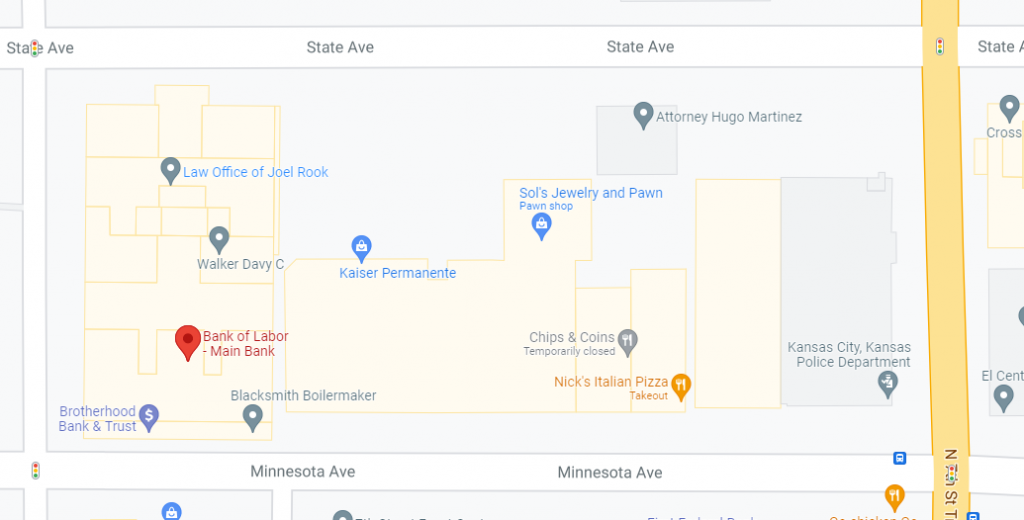There’s No-No Place Like Home

In most places, the way the criminal justice system works is simple: if you commit a serious enough crime, the rest of us, through the government, get to remove you from society. There’s a larger conversation to be had about the role of incarceration in the criminal justice system, but that’s a topic for another time and another publication. For our purposes today, let’s stipulate the following: if you rob a bank, are caught, arrested, charged, and convicted, you can expect to be off to prison next. And by today’s standards, at least in the United States, letting you stay home would be a failure of justice.
That’s probably what Lawrence John Ripple was thinking when he, at age 70, turned to a life of crime for the first time. And, at least from the perspective of those he went to harm, he wasn’t very good at it. But maybe, that was the point.
Ripple’s short-lived crime wave began in September of 2016. He entered the Bank of Labor on Minnesota Avenue in Kansas City, Kansas, intending to rob it. Immediately, that should have raised some questions about how well thought through his plan was; the bank is the red-flagged location in the map above, and if you follow Minnesota Avenue east until the end of the block, you’ll note that the police department is right there. Ripple entered the bank and handed a teller a note saying that he had a gun and demanding that he or she hand over some money. The teller complied, giving Ripple $2,924. Given that the police were almost certainly on their way at that point — and that they didn’t have very far to go — Ripple should have had a plan for a quick escape. But, again, Ripple’s robbery went a different way. As the Kansas City Star reported, “instead of fleeing, Ripple took the money and then took a seat in the bank lobby,” and waited. One of the bank’s security guards approached him shortly thereafter and Ripple handed the money over. The guard kept Ripple in custody until the police arrived just a few minutes later. He didn’t have a gun on him — all he had on him (other than what people usually have on them) was a nail clipper.
What could have simply been one of the worst-planned heists in Kansas history wasn’t quite over, though. Before long, Ripple explained what was really going on in his head that day. He hadn’t planned to rob the bank until that morning; but then, he and his wife of fifty years had an argument at the breakfast table. And, in the moment, he wanted to get away from her — for good. Hastily, per the Star, “he wrote his demand note in front of her . . . and told her he’d rather be in jail than at home.” And it looked like he was going to get his wish.
But he didn’t. And that’s probably a good thing.
Ripple was released on bond right after his capture and was sent back home to continue to live with his wife. The following January, he pleaded guilty to robbing the bank, with sentencing set for later that spring or summer. And at that sentencing hearing in June, he explained more about the situation. As recounted in a follow-up report in the KC Star, Ripple had undergone heart surgery the year prior to his bank robbery, and while the surgery went well, it sparked a bout of depression that had gone undiagnosed. He told the court that he wasn’t really trying to rob the bank and his crime was a “cry for help. Further, he said that he began treatment for depression shortly after his misadventures, and the treatment was working.
Prosecutors and the court agreed — Ripple’s situation called for leniency. He could have been sentenced to more than three years in prison, but instead, the court gave him three years of probation, fifty hours of community service, and restitution in the amount of $227.27 (for the amount due to the bank workers who were sent home after his failed thievery). And on top of that, he was sentenced to six months of home confinement — despite wanting originally to get to jail rather than live with her, Ripple was ordered to spend a lot more time with his wife. The good news, for all involved, is that by then, there were back in a stable relationship.
Bonus fact: On November 28, 2012, someone under the name of “Jellee Beanie” uploaded this 7 minutes, 43 minute video on YouTube with the caption “I just stole a car and robbed a bank. Now I’m rich, I can pay off my college financial aid and tomorrow i’m going for a shopping spree.” During the video itself, she again tells viewers that she stole a car, flashing the keys on the screen and describing its make and model. Then, on screen, reiterates that she robbed a bank (with “a gun and pillowcase”) and then shows off the cash — showing $6,526 to viewers for the better part of two minutes. She wasn’t kidding. A week later, local news reported that she had, indeed, robbed the bank — and now, because of her video confession, police were able to identify her as the thief. She was arrested, convicted, and sentenced to 10-20 years in prison.
From the Archives: Time to Go to Jail: The law versus Daylight Saving Time.
